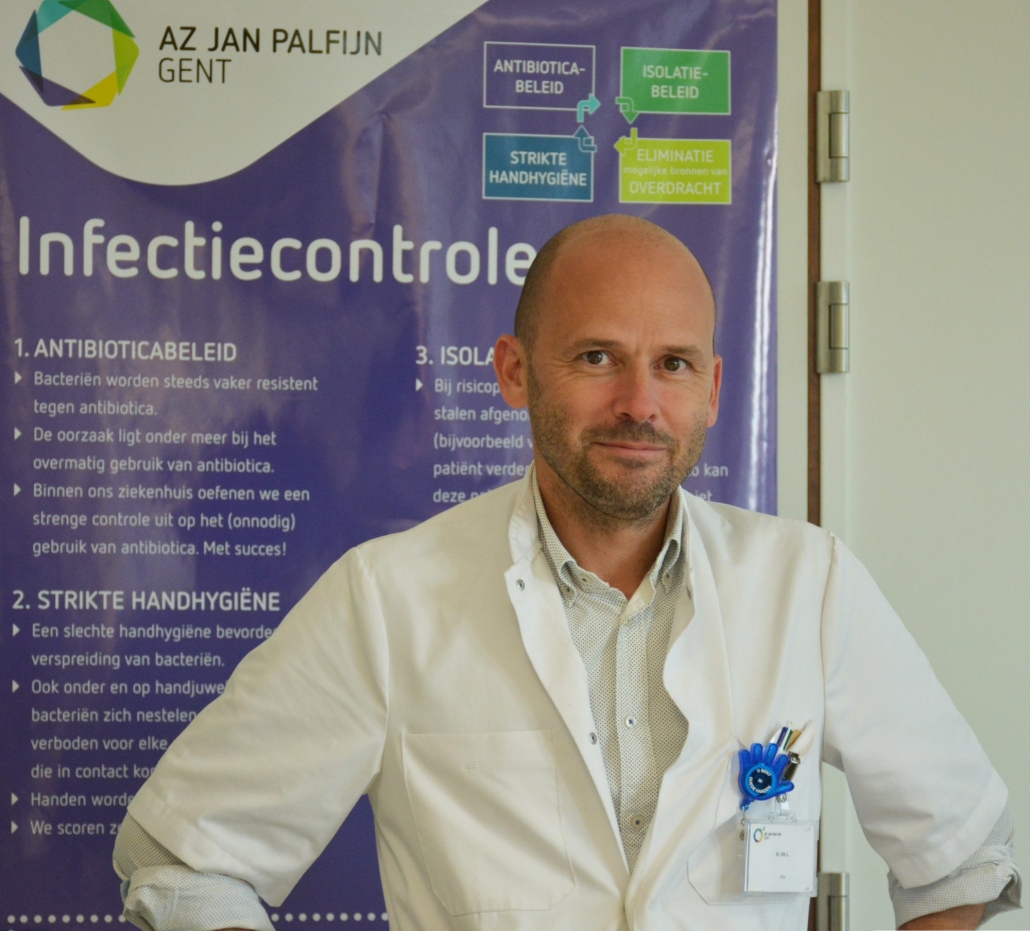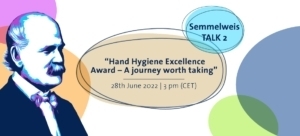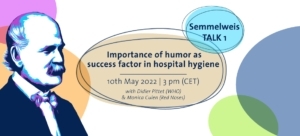Why is it so important to participate at the Hand Hygiene Excellence Award? We interviewed Dr. Louis Ide from the AZ Jan Palfijn in GENT, one of the 2 hospitals awarded at the last HHEA in June at the ICPIC Conference.
What was the motivation to participate at the award, and which efforts did you take until the submission date?
Actually 10 years ago we started our infection strategy based on a medical article in the Clinical Microbiology & Infection. The strategy is all about integrating clinical microbiology, antibiotic policy and infection control (http://www.janpalfijn.be/infectiecontrole). Eliminating transmission, isolation, antibiotic policy and hand hygiene are the keystones in this strategy. Along those 10 years, our (nosocomial) infection rate numbers declined very swift. Few months ago, we thought it was time to perform an internal audit and we used therefore the WHO scheme to do it. Our national committee promoted the use of it (and the possibility of applying to the hand hygiene excellence award). After sending our internal audit (with comments) and answering some questions, Prof. Gastmeier and Dr. Farquet performed an external audit in our hospital. For us, this was already a winner, because we had an external audit for free! Of course, winning was even more nice. We wrote down our story in our national digital infection control journal (in Dutch & French) http://www.nosoinfo.be/nosoinfos/infectiecontrole-in-az-jan-palfijn-gent-een-experience-based-praktijkverhaal/?lang=nl&ref=r217. So, actually we didn’t do any specific thing, we just were ready to apply after many years of hard work.
What must be the qualification of an hospital to participate at the Hand Hygiene Excellence Award?
I can recommend each hospital to do the internal WHO audit. You learn a lot from it. Don’t fool yourself by giving yourself extra points. Doing accurately this audit, you’ll detect gaps, opportunities, etc. Each hospital has to think about its strategy. Every infection control specialist needs 100% support from the board and medical director. Keep it simple! To us infection control is a kind of risk management. The resources are limited, so you have to think about where you will invest with the biggest impact.
Can you tell us something about your Hand Hygiene Programme by which you could demonstrate your excellence in successfully reducing HAI rates?
We ‘re equal: so, everybody has to respect the rules. Sometimes a quarrel is needed when someone refuses to follow the rules. But, also the nurses who won the infection-control-quiz could go to the movies. Everyone controls everyone. It is a kind of attitude which is installed after years. At the end of my talk in Geneva I concluded saying: In our hospital hand hygiene is a very important issue, but not the only strategy. Through ongoing campaigns, introduction of KISS-procedures, information panels, internal and external audits, data collection (and feedback), transparency, hygiene checks, we try to create a real hygiene environment. Infection control is risk management and is important to choose your battles! Picking the right strategy (with little financial impact) creates credibility and support from the board as well as the medical staff. In the long run, hand hygiene success creates a seatbelt feeling: not wearing the seatbelt gives you an unsafe and uncomfortable feeling in your car. The same is true for not applying to hand hygiene requirements once you are used to do so.
What changed in your hospital since the implementation?
Actually, when you look at our data (we like transparency and thus we put them on the internet: http://www.janpalfijn.be/node/430), you can see that there isn’t a specific moment of implementation. When we started in 2007, gradually things went better.
Can you give an advice to those hospitals, which plan to participate for the next HHEA?
Just do it. We are just the two of us (infection control nurse + doctor) for a 526 bed-hospital. Be pragmatic. Also be creative, it is important. Concerning the flu vaccination: we got 65% of our staff vaccinated. We start with an event. We go out on outreach in our hospital (we are no sitting ducks in the vaccination room waiting till someone comes), we use e-mail and send cartoons to everyone, provide a scientific based latter etc. We try to be creative, to create that seat belt feeling…




